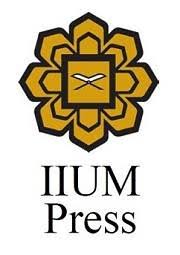مشكلة البطالة عند الشباب الأفغاني وسبل علاجها في ضوء السنة النبوية
Unemployment Problem Among Afghan Youth and Its Solution In light of the Sunnah
DOI:
https://doi.org/10.31436/alburhn.v6i3.255Keywords:
Keywords: unemployment problem, Afghan youth, effects of unemployment, and solutionsAbstract
This research aims to study the problem of unemployment among young people in Afghanistan and ways to solve it in light of the Sunnah of the Prophet. This phenomenon is a major problem for the Afghan people. The Sunnah of the Prophet charted the best approach in solving the phenomenon of unemployment. The problem of unemployment was addressed through general and special guidelines and principles. Among the general prophetic instructions in this regard are; the prohibition of charity on the rich or the one who is able to work, and the pursuit of a halal livelihood. Among the special prophetic directives in addressing this problem are, encouragement to work, urging certain crafts and professions. The research adopted the inductive methodology for collecting texts from authors, relevant sources, and references. The research also followed the analytical method to analyze the field study results, which aimed to get the experts opinions from university professors and other professionals. The study sample was conducted in Afghanistan and consisted of 173 participants (168 males and 5 females) and data were collected using a questionnaire. The results of the questionnaire were analyzed through the technique of SPSS. The study concluded with several results, the notable of which include the following: Among the main reasons for the rise in unemployment are the ending of the ongoing wars and pursuing the real Afghan peace plan, which came in the first place with 88.6%. Secondly, the Agricultural development and economy stands with 87.4%. Thirdly, the tourism industry and its role in job creation stands at 77.6%. In light of these results, the Sunnah of the Prophet recommends the effective measures to solve the problem of unemployment; such as job placement, trade, agriculture, adopting various occupations. This is to ensure safety, happiness, and a blessed life for all; to save religion, belief, and morality from possible threats; and to preserve the individual, the family, and society from the corruptions and vices that unemployment may create in life. In light of all this, the study recommends directing students to the suitable disciplines that possess high demand in the job market. The study also recommends that the training centers need to invent useful programs and offer outstanding qualifications that correspond to the needs of the job market.
Downloads
References
Abdul Wahhab, Sayyed Muhammad. (1422H/2001). Mushkilat al-Biṭalah fī Jumhūriyyat Miṣr al-ʻArabīyyah. Egypt: Jāmiʻat al-Azhar Markaz Ṣāliḥ ʻAbd Allāh Kāmil lil-Iqtiṣad al-Islāmī.
Abū Dāwūd, Sulaymān ibn al-Ash‘ath Al-Sijistānī. (n.d). Sunan Abī Dāwud. (n.ed). ed. Muḥammad Muḥyī al-Dīn ʻAbd al-Ḥamīd. Beirūt: al-Maktabah al-ʻAṣrīyah.
Ahmad Ibn Hanbal. (n.d). Musnad al-Imām Aḥmad bin Ḥanbal. Beirut: Al-Risalah.
al-Baghawī, al-Ḥusayn bin Mahmud. (1403H/1983). Sharḥ al-Sunnah. (2nd ed). Ed. Shoaib Al-Arnaout and others. Beirut: al-Maktab al-Islāmī.
al-Bayhaqī, Aḥmad bin al-Ḥusayn bin ʿAlī bin Mūsā. (1424H/2003). Al-Sunan al-kubrá. (3rd ed). Ed. Muhammad ʻAbd al-Qādir ʻAṭā. Beirut: Dar al-Kutub al-ʻIlmiyyah.
al-Bukhari, Muhammad ibn Isma'il. (1423H/2002). Al-Jāmiʻ al-Musnad al-Ṣaḥīḥ al-Mukhtaṣar Min Umūr Rasūl Allāh Ṣallá Allāh ʻalayhi Wa-Sallām Wa-Sunanihi Wa-Ayyāmih. Damascus: Dār Ibn Kathīr. (1st ed).
al-Dardīr, Aḥmad ibn Muḥammad. (n.d). al-Sharḥ al-Ṣaghīr ʻalá Aqrab al-masālik ilá madhhab al-Imām Mālik. Cairo: dar al-Maʻārif.
Husain Abdul Bari et al. (2012). Al-Baṭālah al-asbāb wa-al-makhāṭir al-mutarattibah ʻalayhā wa-kayfa ʻālajhā al-Islām. Cairo: Dār al-Fikr al-Jāmiʻī. (1st ed).
al-Kināni, Shihāb al-Dīn Aḥmad al-Būṣīrī, (1420H/1999). Itḥāf al- khiyarah al-maharah bi-Zawāʼid al-masānīd al-ʻasharah. Ed. Abu Tamim Yasir bin Ibrahim. Riyāḍh: Dār al-Waṭan lil-Nashr. (1st ed).
Muslim bin al-hajjaj al-Naysābūrī. (1427H/2006). al-Musnad al-ṣaḥīḥ al-mukhtaṣar mina al-sunan bi-naql al-ʻadli ilá Rasūl Allāh ṣallá Allāh ʻalayhi wa-sallam. Riyāḍh: Dār Ṭaybah. (1st ed).
Muslim bin al-hajjaj al-Naysābūrī. (n.d). Ṣaḥīḥ Muslim. (Muhammad Fuad abdul al-baqi, Ed.). Beirūt: Dār Iḥyāʼ al-Turāth al-ʻArabī.
al-Nasāʼī, Ahmad bin Shihāb bin ali al-Khurasani. (1406H/1986). al-Sunan al-ṣughrá lil-Nasāʼī. (Abdul Fattah abu guddah, Ed.). Aleppo, Syria: Maktab al-Maṭbūʻāt al-Islāmīyah.
al-Ṣanʻānī, Abū Bakr ʻAbd al-Razzāq bin Hammam. (1403). Muṣannaf ʻAbd al-Razzāq. (2nd ed). (Habibur Rahman al-ajami, Ed.). India: al-Majlis al-ʻIlmī.
al-Sayyid ʻAbd al-Samī`, Usāmah. (2008). Mushkilat al-baṭālah fī al-mujtamaʻāt al-ʻArabīyah wa-al-Islāmīyah. Cairo: Dār al-Fikr al-Jāmiʻī. (1st ed).
al-Suyūṭī, Jalāl al-Dīn ʻAbd al-Raḥmān bin Abī Bakr. (1416H/1996). al-Dībāj ʻalá Ṣaḥīḥ Muslim. Ed. Abū Isḥāq al-Ḥuwaynī al-Atharī. Dār Ibn ʻAffān. (1st ed).
al-Suyūṭī, Zahr al-rubá ʻalá. (1922). al-Mujtabá. Dār al-Kutub al-Qawmīyyah.
Downloads
Published
How to Cite
Issue
Section
License
In general, reusing or reproducing substantial portions of al-Burhān content requires permission. This includes the use of text, figures, tables, multimedia content, and any other material published in any issues of al-Burhān Journal of Qur'an and Sunnah Studies. For some instances, al-Burhān may make its content freely viewable; however, such material may require permission for reuse. To seek permission, please contact the editorial.









